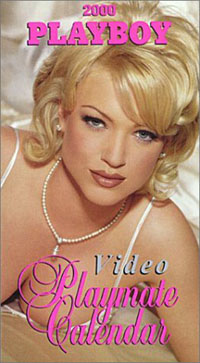Muslim Indonesia reads local version of Playboy
A toned-down edition of Playboy magazine went on sale Friday in Indonesia , defying threats of protests by Islamic hardliners who called the publication a form of moral terrorism in the world's most populous Muslim nation. The magazine, whose photos of female models in skimpy clothes are no more risque than those in other magazines already for sale in the country, sold briskly at stalls across the capital, helped no doubt by a storm of media interest in the publication.

Protesters hit Indonesian streets when the magazine announced in January it was planning a local version, but it remains to be seen whether demonstrations will pick up again after people have read it. One hardline group, the Islamic Defenders Front, pledged to forcefully remove the magazines from shops.
"The first edition might be tame, but it will get more vulgar," said group spokesman Tubagus Muhamad Sidik. "Even if it had no pictures of women in it, we would still protest it because of the name." Muslim leader Yusuf Hasyim said the magazine posed more of a threat to Indonesia than terrorism by al-Qaida-linked militants who have killed more than 240 people in the sprawling country in recent years.
"This is a kind of moral terrorism that destroys the way of the life of the nation in a systematic and long-term way," state news agency Antara quoted Yusuf Hasyim as saying, calling on Muslim youth not to attack shops selling the magazine. Playboy, which already has 17 international editions with content tailored to local tastes, played down the protest threats.
"Let the people look at it and see what they think, hopefully they will accept it," said promotion manager Avianto Nugroho. "If there are demonstrations, we will try to meet their demands." The magazine is unlikely to worry too much, so long as protests remain small and peaceful, and indeed it may well welcome the publicity.
Unlike in the Middle East , protests in Indonesia against the publication of cartoons of the Prophet Muhammad in Western newspapers earlier this year attracted only a few hundred people at a time and were short-lived. Most Indonesians practice a moderate form of Islam, and many women shun standard Middle Eastern forms of dress associated with Muslims. Many Indonesian women do not cover their heads and often dress in tight-fitting jeans and sleeveless tops.
Indonesian versions of Western magazines FHM and Maxim, which also contain photos of women in underwear, are already on sale. Local tabloids feature more explicit photos and stories. "This magazine is going to be popular," said one vendor, who gave his name as Herbert. "People are only hearing the name and allowing their blood to boil."
Pornographic VCDs, though illegal, are sold more or less openly at markets all over the country. Internet cafes are often packed with schoolchildren and adults accessing sexually explicit material. The magazine costs about US$5 (3.5), more than twice the minimum daily wage in Jakarta , but affordable to many middle- and upper-class city dwellers, reports the AP.
N.U.
Subscribe to Pravda.Ru Telegram channel, Facebook, RSS!


